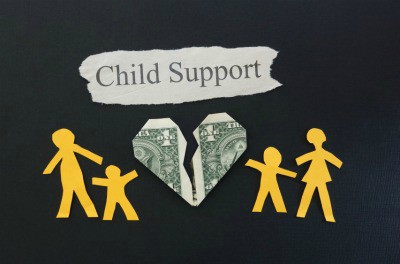 A child support order has been established obligating one parent, called the obligor, to pay child support for the benefit of the child. Time has passed and the obligor has not paid the child support, has not paid it consistently or has only paid a portion of the ordered amount. What next?
A child support order has been established obligating one parent, called the obligor, to pay child support for the benefit of the child. Time has passed and the obligor has not paid the child support, has not paid it consistently or has only paid a portion of the ordered amount. What next?
Unpaid child support, called an “arrearage” or “back child support,” becomes a judgement by operation of law, and cannot be set aside, changed or discharged in bankruptcy. If the obligor is not paying the ordered amount of child support, a Motion to Show Cause can be filed that requires the obligor to appear in court for a hearing to explain to the judge why he or she should not be held in contempt of court for failing to pay as ordered. Contempt of court for failure to pay can be criminal or civil, and the Motion to Show Cause should state whether the petitioner is seeking a finding of criminal or civil contempt.
A finding of criminal contempt is intended to punish and may result in a fine and/or a definite amount of jail time. A finding of civil contempt, by contrast, is intended to remedy the non-payment of child support by coercing the obligor to pay the arrearage. Civil contempt can result in jail time up to 12 months, but the obligor “holds the keys to the jail” because he or she can purge him or herself of contempt by paying the arrearage. If the show cause hearing results in jail time for the obligor, the court will establish the amount of the child support arrearage and the amount the obligor must pay to purge him or herself of contempt and be released from jail.
An obligor may appeal the amount of child support arrearage established by the juvenile court during the show cause hearing to the circuit court. However, to do so, he or she will have to post an appeal bond in an amount sufficient to (a) satisfy the arrearage that the circuit court may establish if the appeal is heard or (b) satisfy the arrearage established by the juvenile court if the appeal is not heard. If the appeal is heard and the circuit court establishes a child support arrearage, that amount will be paid (from the appeal bond) to the person to whom the child support was payable for the benefit of the child. If the appeal is not heard, the amount of child support arrears established by the juvenile court will be paid (from the appeal bond) to the person to whom the child support was payable. The juvenile court may also require the appealing obligor to post an appearance bond, as well as a bond in an amount sufficient to cover the payment of prospective support that will accrue while the appeal is pending. The circuit court will not have jurisdiction to hear an appeal of an order setting a child support arrearage unless the obligor, or someone for him or her, pays the appeal bond and any other bonds required by the juvenile court.
If you have questions about child support arrears, contact an experienced family law attorney. The family lawyers at Livesay & Myers have years of experience handling child support cases in the courts of Northern Virginia. Contact us to schedule a consultation today.
